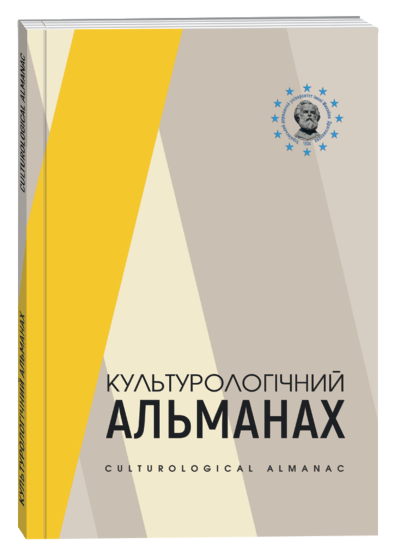THE RELATIONSHIP BETWEEN THE PROBLEMS OF HISTORICAL PERIODIZATION AND CLASSIFICATION OF SCIENCE
DOI:
https://doi.org/10.31392/cult.alm.2022.4.13Keywords:
science, scientific knowledge, origin of science, stages of science development, types of scienceAbstract
Problem. The problem of interrelation of periodization of scientific development and typology of various formal, essential, praxeological manifestations of scientific knowledge is actualized. Science is considered in several dimensions: socio-historical, knowledge-epistemological, philosophical-ideological, technical-practical. New characteristic features of science are revealed, which actively influence modern social life in the world, which is characterized by tendencies of instability and turbulence. The purpose of the article is an attempt to provide an argumentative and evidential justification of the difference in the classification of scientific knowledge at all the main stages of its formation. The tasks of the article is to clarify the definitions of scientific knowledge, which will be gradually specified and deepened, however, from the very beginning it is worth noting that in any form it is always orderly, evidential and verifiable, successfully relayed practically significant intersubjective knowledge. Methods. Hermeneutic and phenomenological methods will be used to analyze the basis of the classification of sciences, which will make it possible to carry out a comparative analysis of various historical and sociocultural manifestations of scientific knowledge as a self-sufficient phenomenon. Results. Variants of the date and place of appearance of science, which depend on the model of scientific knowledge, are analyzed. First, science is identified with the experience of practical and cognitive activities in general. Secondly, science is understood as a conscious, purposeful study of nature with a clear reflection on ways to confirm the acquired knowledge and the very criteria of cognitive activity. Third, science is defined as an activity based on experience, observation, and experimentation, rather than on the authority of a religious or philosophical paradigm. Fourth, science is understood as the latest knowledge about nature and reality, capable of producing mathematical models of the phenomena being studied, comparing them with practical material, conducting theoretical constructions using imaginary experiment. Fifth, science is seen as the unity of research and education, through which science is transformed into a specialty, a profession. It is emphasized that modern science is a powerful phenomenon that studies all phenomena of the world, even itself – the tendencies of its own origin and development, intersection with other cultural forms, the impact on the material and spiritual life of society.
References
Докінз Р. (2018). Егоїстичний ген / пер. з англ. Харків : Книжковий Клуб «Клуб Сімейного Дозвілля». 429 с.
Еліаде М. (2016). Трактат з історії релігій / пер. з фр. О. Панича. Київ : Дух І Літера. 520 с.
Кант І. (2000). Критика чистого розуму / пер. з нім. та приміт. І. Бурковського. Київ : Юніверс. 504 с.
Койн Дж. (2015). Чому еволюція правдива / пер. з англ. Т. Цимбала. Київ : Наш Формат. 288 с.
Ляйбніц Г.В. (2013). Монадологія / пер. з фр. Павла Бартусяка під редакцією Олега Хоми. Sententiae, XXVIII. № 1, 151–177.
Райх Д. (2019). Хто ми такі? Походження людини крізь призму ДНК / пер. з англ. А. Марховської. Київ : Наш Формат. 368 с.
Філософія і методологія науки : курс лекцій. (2012). Харків : Нац. ун-т цивільного захисту України. 150 с.
Behrens T.K., Holeva-Eklund W.M., Clifford D., Henderson R., Colleary C. (2021). Preliminary Investigation of Think Tank Groups to Improve University Department Work Culture. Journal of Health Education Teaching, No. 12(1), 15–27.
Casarella P.J. (ed.). (2006). Cusanus: A Legacy of Learned Ignorance. Washington, D.C. : Catholic University of America Press. 280 p.
Comte A. (1936). Cours de Philosophie positive (1830–1842). Paris : Librairie Larousse.
Jaspers K. (2016). Vom Ursprung und Ziel der Geschichte. Basel : Schwabe Verlag, 284 s.
Popper K. (1972). Objective Knowledge: An Evolutionary Approach. New York : Oxford University Press; Oxford : Clarendon Press. 380 p.
Spengler O. (2017). Der Untergang des Abendlandes. Umrisse einer Morphologie der Weltgeschichte. München : Anaconda Verlag. 1472 s.








